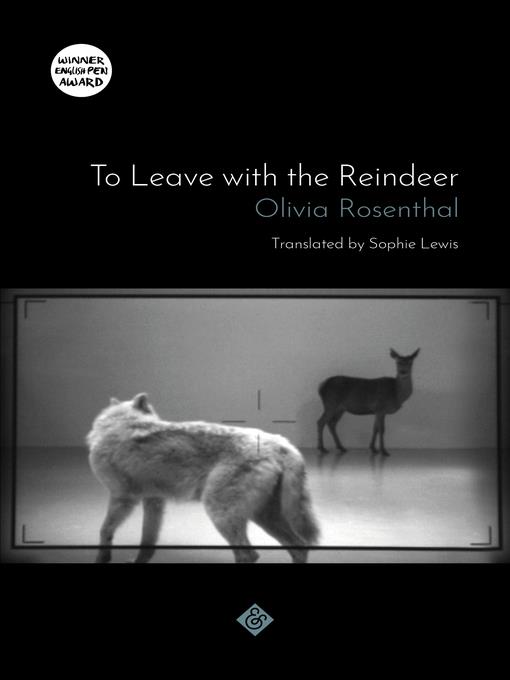
To Leave with the Reindeer
- اطلاعات
- نقد و بررسی
- دیدگاه کاربران
نقد و بررسی

February 1, 2019
A meditation on the parallels between human and animal nature.Since the 17th century, when French philosopher Blaise Pascal's Pensées appeared, many writers have undertaken essays in fragments, using the broken form to juxtapose ideas, to make associative leaps, to tease out analogies (though Pascal's fragments were the result not of trying to be avant-garde but of dying before completing the text). French novelist Rosenthal (We're Not Here to Disappear, 2015, etc.) has written what is ostensibly a novel but which reads for much of the book like, well, Pensées. Written in the second person, the novel is loosely plotted as a coming-of-age story in which the protagonist's life arc is defined by her relationship to animals. Cutting into the loose bildungsroman narrative are nonspecific first-person voices who have various relationships to animals: zoo handlers, researchers, a butcher. In some cases, this interweaving feels overly meditative and makes the narrative static, especially in the more meandering first half. But at other times, it's deeply affecting, as when the teenage "you" has her first love as a teenager and the boy ends his life shortly after the relationship is over. This is interwoven with a voice explaining the conditions under which animals are euthanized--"he'd died sitting up," says this voice about a zoo elephant, "I'll never get that image out of my mind." Although the novel's power is not evenly distributed, it gathers steam as it goes and even from the outset offers startling and frequently beautiful ruminations on the way the tension between wildness and domesticity affects both humans and beasts.By eschewing most of the qualities of a traditional novel, Rosenthal's book takes risks that don't always pay off--but when they land, they offer luminous moments.
COPYRIGHT(2019) Kirkus Reviews, ALL RIGHTS RESERVED.

May 27, 2019
Rosenthal (We’re Not Here to Disappear) blurs the line between beast and human in this mesmerizing exploration of a woman’s search for identity. The unnamed narrator has a ferocious interest in animals and sets out to introduce wolves into urban environments. Another narrative thread involves a farm boy who grows to relish his work in a slaughterhouse and later crosses paths with the main character when she comes to his private butcher establishment; he teaches her about the particulars of animals raised for human consumption. Rosenthal traces her narrator’s trajectory from difficult birth to a tantrum-throwing child, an adolescent furtively exploring sexuality, and a docile woman who eventually breaks free of convention. There are repeated refrains in her life: about betrayal, staying silent in order not to tell lies, threatening to leave her family to go wherever Santa’s reindeers disappear to after Christmas, about the tragic loss of her first love and about trying to be free. In addition to unearthing the narrator’s search for independence, Rosenthal explores what it means for free creatures to be under someone else’s control. This story of self-discovery explores the many dimensions of captivity, whether it’s a caged animal or a human being stifled by societal conventions and strict mores, and the result is unusual and ultimately triumphant.




دیدگاه کاربران